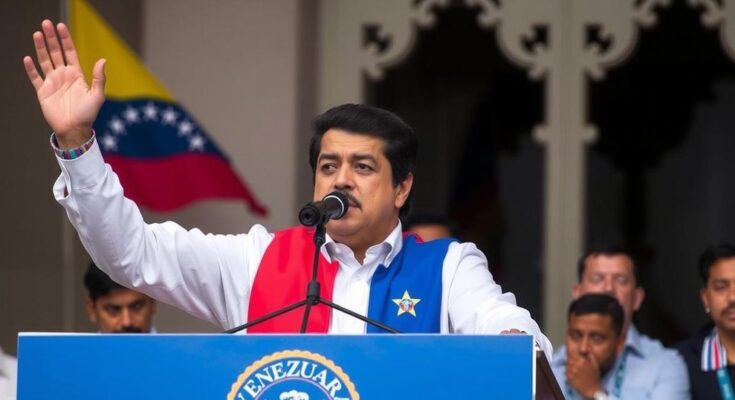Venezuelan President Maduro is sworn in for a third term amid election disputes; the U.S. extends protections for Venezuelan and El Salvadoran nationals; Israeli military targets in Yemen after drone attacks; new U.S. sanctions against Russia’s energy sector are announced.
In a significant political event, Venezuelan President Nicolás Maduro was officially sworn in for a third term following an election that has been widely regarded as controversial. This swearing-in comes amidst ongoing international scrutiny regarding the legitimacy of the electoral process. Concurrently, the Biden administration announced the extension of temporary protective status for a considerable number of Venezuelan and El Salvadoran nationals residing in the United States, showcasing a commitment to aid those affected by regional instability.
In other global developments, the Israeli military targeted locations in Yemen in response to drone attacks launched by Houthi forces aimed at Israeli territory. This escalation underscores the increasing tensions in the Middle East. Additionally, the Biden administration has implemented further sanctions against Russia’s energy sector, reflecting continued U.S. opposition to Russia’s actions on the international stage.
The political climate in Venezuela has been marked by tension and division, particularly surrounding elections in which allegations of fraud and misconduct have surfaced. This heated atmosphere persists as Nicolás Maduro continues to defend his presidency despite claims of illegitimacy from various quarters. The situation for Venezuelan expatriates remains critical, prompting U.S. intervention through the extension of temporary protective status. Moreover, geopolitical developments in the Middle East, particularly between Israel and the Houthis, add layers of complexity to regional security dynamics, while the situation regarding Russia highlights ongoing international concerns about energy politics and conflict.
In summary, the swearing-in of President Nicolás Maduro signifies a continuation of intense political strife in Venezuela, compounded by the Biden administration’s efforts to support displaced nationals from the region. Meanwhile, the Israeli military’s proactive measures in Yemen and new sanctions against Russia illustrate the diverse challenges that the current U.S. administration faces on multiple fronts. These events underline the intricate web of international relations and the pressing need for diplomatic engagement.
Original Source: www.thirteen.org




